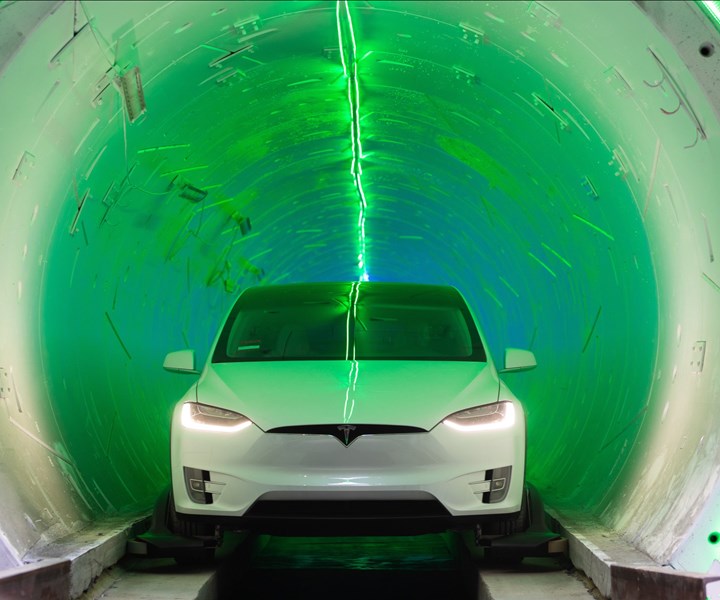Elon Musk teases Vegas Hyperloop tunnel for 2020
The Boring Co. hopes to complete a Hyperloop project in Las Vegas in 2020 that would carry passengers between the Las Vegas Convention Center (LVCC) and the Las Vegas Strip.

Source | The Boring Co.
Boring Co. (Hawthorne, Calif., U.S.) founder Elon Musk tweeted on December 27 that the company hopes to complete a Hyperloop project in Las Vegas that would carry passengers between the Las Vegas Convention Center (LVCC) and the Las Vegas Strip. The digging of the tunnel reportedly began in November 2019. The project will consist of an approximately 1-mile long twin tunnel loop system and transport passengers via autonomous electric vehicles (AEVs) — presumably modified Tesla vehicles — at speeds around 155 miles per hour.
Hyperloop is a longtime pet project for Musk who also serves as the CEO for SpaceX (Hawthorne, Calif., U.S.) and Tesla (Palo Alto, Calif., U.S.). Musk originally published his Hyperloop Alpha white paper in 2013, and since then the concept has captured the imagination of the public as a possible fifth mode of transportation that would use pods to transport passengers and freight at high speeds through a tube or series of tubes designed to reduce air resistance using a partial vacuum.
SpaceX has continued to support Hyperloop through its Hyperloop Pod competition, which has been held annually at the company’s Hyperloop test track in Hawthorne, Calif., U.S., since its inception in 2015. Following the July 2019 competition, SpaceX announced plans to build a new 10 kilometer-long (roughly 6 miles) Hyperloop track to be used for the 2020 pod competition.
Related Content
-
Moving toward sustainable automotive parts manufacturing
How can the automotive supply chain prepare for future sustainability requirements? Tier 1 Kautex Textron discusses emissions reduction, design for circularity and transition to recycled/bio-based plastics.
-
Bcomp ampliTex makes appearance in Cupra EV Cup Bucket seats
The entire Cupra Born VZ line-up features all-natural fiber front seats that highlight functionality, aesthetics and reduced CO2 emissions.
-
Composites end markets: Batteries and fuel cells (2024)
As the number of battery and fuel cell electric vehicles (EVs) grows, so do the opportunities for composites in battery enclosures and components for fuel cells.






